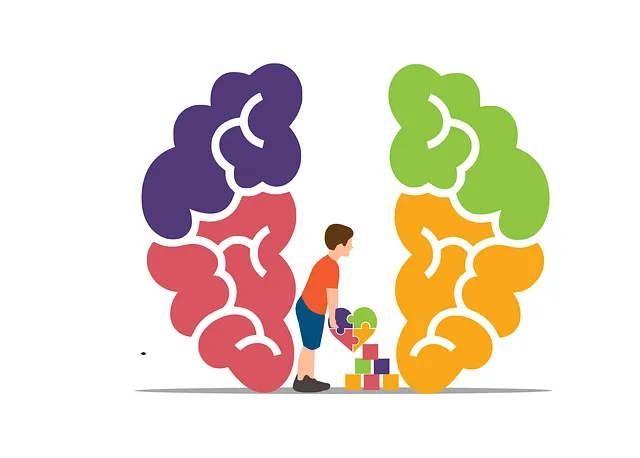Westminster Kaiser Permanente mental health facility offers Crisis Intervention Team (CIT) training, focusing on empathy, communication, and de-escalation skills for high-pressure situations. Integrating mindfulness and anxiety relief techniques, this program aims to prevent burnout while fostering compassion and resilience in healthcare professionals. Beyond procedure, CIT trainees learn active listening, cultural competence, and depression prevention strategies, promoting trust and long-term mental health equity through holistic, evidence-based approaches.
In today’s challenging landscape, effective crisis intervention teams (CITs) are essential in healthcare settings. This article explores critical aspects of CIT training programs, focusing on the successful model implemented at Westminster Kaiser Permanente, a leading mental health facility. We delve into key skills required for CIT members to provide timely and compassionate support during crises. By examining these components, we aim to highlight best practices that can enhance crisis response capabilities across various healthcare organizations.
- Understanding Crisis Intervention Team Training
- Westminster Kaiser Permanente: A Model Program
- Essential Skills for Effective Mental Health Support
Understanding Crisis Intervention Team Training

Crisis Intervention Team (CIT) training programs are designed to equip healthcare professionals with the skills needed to support individuals facing mental health crises. These programs, often offered at facilities like Westminster Kaiser Permanente’s mental health facility, focus on enhancing empathy, communication, and de-escalation techniques. CIT training isn’t just about learning specific interventions; it empowers providers to create a calm, supportive environment, reducing the risk of burnout.
By integrating mindfulness meditation and anxiety relief techniques into their repertoire, healthcare workers can better manage their own stress levels. This is particularly crucial in high-pressure settings where burnout prevention strategies are essential for maintaining quality patient care. CIT training programs play a vital role in fostering a culture of compassion and resilience within the healthcare community.
Westminster Kaiser Permanente: A Model Program

Westminster Kaiser Permanente stands out as a model program for crisis intervention team training, integrating comprehensive mental health support with emergency response strategies. This mental health facility prioritizes community engagement and evidence-based practices, ensuring that first responders are equipped with both the technical skills in Social Skills Training and the empathetic mindset necessary to handle high-stress situations.
Their approach goes beyond Crisis Intervention Guidance by fostering a collaborative environment where policymakers, advocates, and healthcare professionals work together through Mental Health Policy Analysis and Advocacy. This holistic strategy not only enhances the effectiveness of crisis response but also promotes long-term mental health equity within the community.
Essential Skills for Effective Mental Health Support

At the Westminster Kaiser Permanente mental health facility, crisis intervention team (CIT) training goes beyond mere procedure memorization. Effective CIT members must possess a unique blend of skills to provide holistic and impactful support. Central to this is active listening, where trainees learn to understand clients’ perspectives and emotions without judgment, fostering an environment of trust and safety. This skill, combined with empathy and cultural competence, enables CIT team members to connect with individuals from diverse backgrounds, ensuring tailored interventions that address specific needs.
Beyond direct client interaction, training emphasizes the importance of resilience building and depression prevention strategies. CIT trainees are equipped with tools to help clients develop coping mechanisms, build inherent strength, and recognize early warning signs of mental health deterioration. This proactive approach aligns with broader mental health policy analysis and advocacy efforts, ensuring that support extends beyond immediate crises and promotes long-term well-being within the community.
Crisis intervention team training programs, like those offered at Westminster Kaiser Permanente mental health facility, play a pivotal role in equipping professionals with the essential skills to support individuals during crises. By understanding the dynamics of crisis situations and leveraging evidence-based strategies, these teams can make a profound impact on community well-being. The model program at Westminster Kaiser Permanente serves as a testament to the effectiveness of such training in fostering a culture of resilience and effective mental health support.






